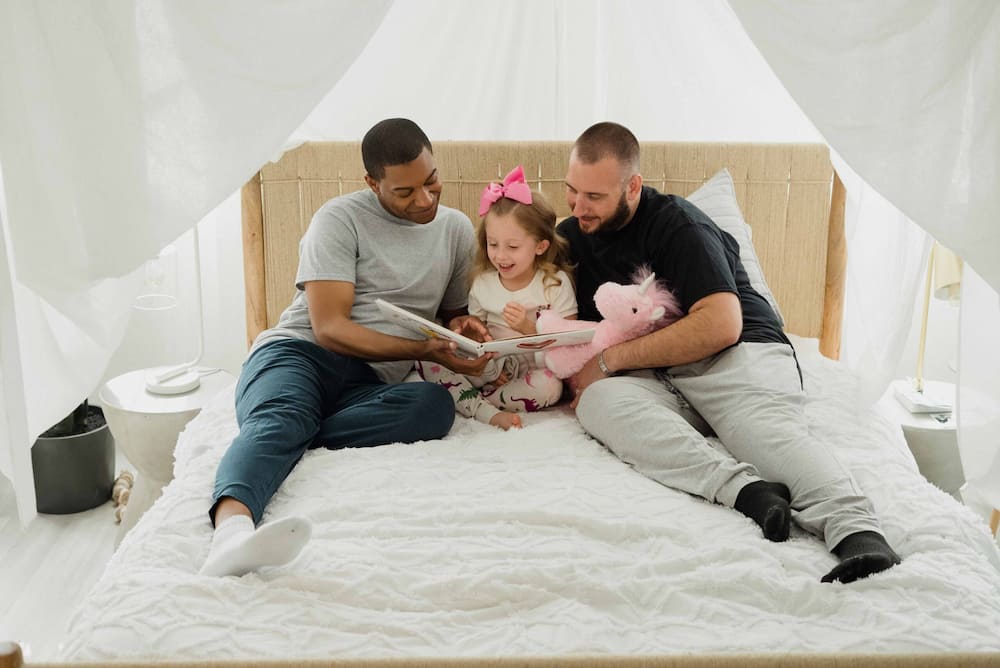The Inspired Blog
December 18, 2023

I remember reading about something called secondary infertility in a Reader’s Digest article when I was in college, years before I would be trying to become a parent. But it startled me! I had no idea that was even a thing. Looking back I don’t know if the anxiety that it gave me was the universe trying to tell me something or just my anxiety being the faithful sidekick it’s always been. I would mention my concerns to people and immediately be dismissed. I was young! We hadn’t even started a family yet, why on earth was I already “buying trouble”?
I was beyond fortunate to have my first child without any difficulty. Then life did what it tends to do, and I found myself a single mother before I was able to have more children. The idea of secondary infertility was always in the back of my mind, but I was in fact, still young. Getting pregnant had been easy and I had a very easy pregnancy. I went on to meet someone, fall in love and get married again. I had such big dreams to have a baby together, give my child a sibling, and “complete” our family.
In the background of wedding planning, I had been to my OBGYN to have testing run because weird things were happening with my body. She ran the standard tests, an ultrasound and bloodwork. She assured me that everything looked great and I should have “no problem at all” with getting pregnant after the wedding. But just 6 months later, a month after getting back from our honeymoon, I was at the local fertility clinic, receiving the news that I was in premature ovarian failure at age 35 and would need to use donor egg IVF if I wanted more children. And just like that; secondary infertility took over my life.
What is Secondary Infertility?
Like infertility as a whole, and maybe even more so, secondary infertility is not widely known as something people struggle with. Most people (myself included) think if you can have one baby, you can have as many more as you want. Perhaps you’ve heard of it, but after something like a person undergoing cancer treatments or having to have a hysterectomy. The Mayo Clinic defines secondary infertility as “Secondary infertility happens when you can’t get pregnant or carry a baby to term after you’ve been pregnant before and had a baby without any trouble. Diagnosis can happen after having one child, or after baby 2, 3, and so on. Secondary infertility shares many of the same causes of primary infertility.” Some of the more common causes are:
- Sperm related problems – shape, amount, or how the sperm moves
- Egg related problems – number and quality
- Age related issues- this is especially true for people with biologically female reproductive systems
- Previous medical issues – previous pregnancy complications, medical conditions and treatments unrelated to pregnancy (cancer for example), and surgeries that effect the reproductive system
- Current medical issues – endometriosis, PCOS, various auto-immune disorders, and medications
- “Unknown infertility” – everything looks normal, but you’re not getting pregnant.

After Diagnosis
Secondary infertility is a unique version of hell. I don’t say that to suggest that it is somehow worse than primary infertility; just that it’s own beast. It is almost always completely unexpected and a shock because after-all; you’ve already had children with no problems. The majority of resources that are available tend to focus on primary infertility. I can remember sitting in my RESOLVE support group and feeling guilty for my feelings as I sat with people who were desperate to have their first child, while I already had one. There are online support spaces where those of us experiencing secondary infertility are not especially welcomed, both openly stated in group descriptions and more subtly in how we are treated in those groups. To be clear, I understand and am not suggesting that people walking through primary infertility shouldn’t have their own spaces. I’m simply sharing the added complication it can add to trying to find support.
Other Aspects of Secondary Infertility
A lot of well intentioned advice from loved ones that can make your blood boil. Things like “well, at least you were able to have your child(ren), try to be happy with what you have!”. Another one I heard often from parents of only children was “I can’t imagine having another one, one is perfect!”. I still get angry thinking about those comments, no matter how well-intentioned they were!
There is also a specific sense of body betrayal with secondary infertility. Your body did what you needed it to do just fine, and now it can’t. It’s not uncommon for people to express a lot of regret that they waited to have more children, for whatever reason. If you had one child before developing secondary infertility there can be immense guilt and sorrow with the realization that you may not be able to have a sibling for your child. That sadness tends to stay with people as they raise their only child with an increasing understanding of what that may mean for not only your child but for you as an aging parent. Things like your child will be alone once you are gone, or that the full responsibility of caring for you in your older age/poor health may fall on your child with no one to help them, etc. There is the constant awarness of the children you already have and feeling immensely grateful while also still having a very real hole in your heart.
How Therapy Can Help
Therapy that focuses on secondary infertility can be a much needed space for support and healing. Therapy will give you a place to say all the quiet parts out loud without the fear of being judged. You don’t have to think about other people’s feelings or reactions. It’s a place that is all about and for you. You will learn ways to cope with your feelings in ways that are more productive and effective. With the right person, you will feel heard, seen, and validated as you walk through your journey. Some people will go through fertility treatments and have more children. Others will go through treatments and not have the children they so deeply want. Another group of people experiencing secondary infertility will not go through treatments for a variety of reasons. It’s all hard and deeply painful.
My own experience with secondary infertility led me to seek out additional training as a therapist for infertility counseling. I am passionate about working with people who find themselves in struggling with the thoughts and feelings that come with a diagnosis, treatments, and beyond. I would love to visit with you about working together if you feel you would benefit from therapy. A free 15 minute consultation to make sure we both feel like we’d work well together is the first step. Reach out to schedule! You can also learn more on my page dedicated to infertility counseling. You are not alone and you deserve support that meets you where you are!